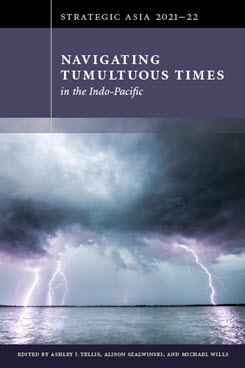China’s Big-Power Diplomacy: Strategic Rivalry and Geopolitical Expansion in the Indo-Pacific
This chapter examines China’s foreign policy under Xi Jinping in the context of heightened U.S.-China rivalry, deglobalization, and the Covid-19 pandemic.
EXECUTIVE SUMMARY
MAIN ARGUMENT
Xi Jinping has abandoned Deng Xiaoping’s low-profile diplomacy and instead adopted big-power diplomacy to restore China’s historical centrality on the world stage. Competing from a perceived position of strength, China has increasingly challenged the U.S.-led liberal international order and promoted the superiority of the China model of authoritarianism. Xi’s big-power diplomacy has also expanded China’s geopolitical reach in the Indo-Pacific by launching new initiatives and forging partnerships with emerging countries. But this projection of power and confidence has covered up the reality that China still is a fragile superpower facing serious domestic economic and political challenges. Externally, China’s ambition continues to be checked by U.S. power. As the two rivals are incapable of dominating each other, they must find ways to prevent their competition from escalating into a cold war or even a hot war in which everyone would lose.
POLICY IMPLICATIONS
- The U.S. must coordinate with its allies and partners on important issues in the competition with China and push back against the fantasies of Chinese nationalists. Yet Washington should not force countries to take a side and make the alliances and partnerships exclusively confrontational against China in a zero-sum game.
- Cooperation between rivals may be uncomfortable but is necessary. The U.S. cannot make progress on global challenges such as climate change, the pandemic, and nuclear proliferation without working together with China.
- The world is in danger of moving toward a power vacuum, where it is every country for itself, which could be more dangerous than power hegemony. The U.S. must welcome China to take on more global responsibility and join the U.S. and others in making rules for global governance.
Suisheng Zhao is Professor and Director of the Center for China-U.S. Cooperation in the Josef Korbel School of International Studies at the University of Denver.



